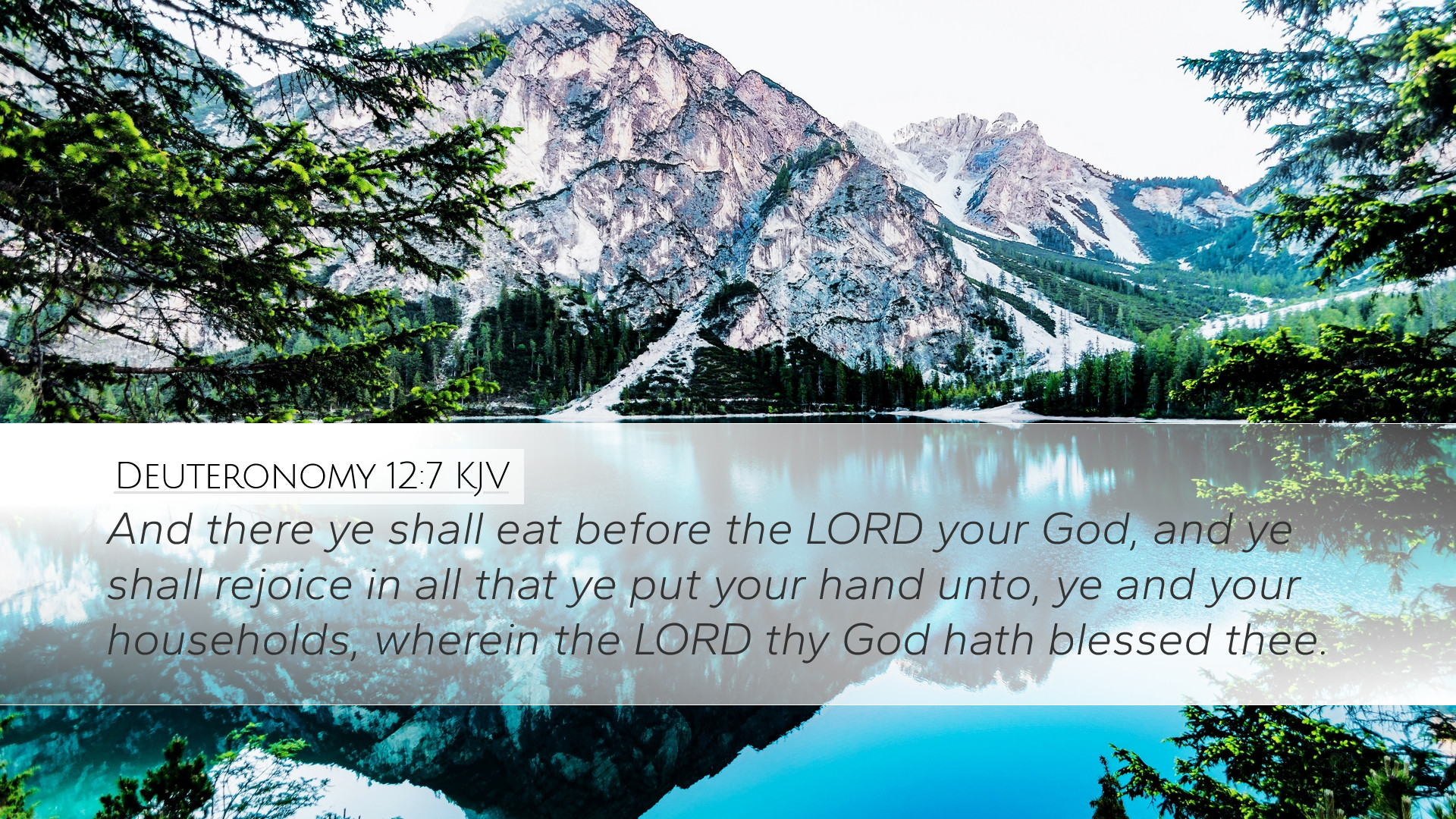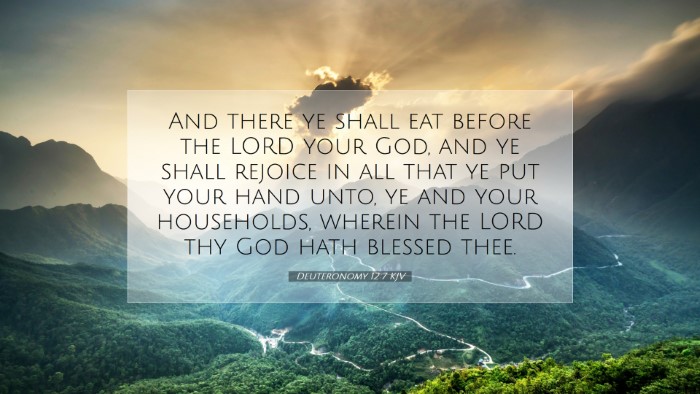Commentary on Deuteronomy 12:7
The verse Deuteronomy 12:7 states:
“And there ye shall eat before the Lord your God, and ye shall rejoice in all that ye put your hand unto, ye and your households, wherein the Lord thy God hath blessed thee.”
Contextual Background
In the context of Deuteronomy, Moses addresses the Israelites as they prepare to enter the Promised Land. Deuteronomy serves as a restatement and expansion of the law, emphasizing the necessity of worshipping God in the prescribed manner. This verse falls within the broader discussion of how and where the Israelites are to worship Yahweh.
The Theme of Worship
Deuteronomy 12:7 emphasizes the communal aspect of worship and the necessity of celebrating God's blessings. This provides deep theological implications:
- Worship as a Community: The gathering of households signifies the importance of communal worship in Israelite culture. Matthew Henry notes that joy in worship is depicted not as an individual experience but one deeply rooted in community.
- Rejoicing in Blessings: The verse highlights the necessity of recognizing and rejoicing in the blessings of God, as Adam Clarke points out that such recognition fosters gratitude and appreciation among the people of Israel.
- Preparation of the Heart: Albert Barnes teaches that worship requires a heart prepared to acknowledge God's provision—an essential aspect of entering the land He has given.
Insights from The Commentators
Matthew Henry
Henry emphasizes that this verse encapsulates the spirit of true worship, where heartfelt offerings bring joy not just to God but also to the worshippers. He suggests that the act of eating before the Lord was a form of communion, signifying fellowship between God and His people.
Albert Barnes
Barnes elaborates on the concept of 'eating before the Lord,' illustrating that it represents a sacred meal that acknowledges God's providence. This act is not merely a ritual but is infused with the joy of recognizing one's blessings, which aligns with the nature of Israel's covenant with God.
Adam Clarke
Clarke further develops the idea of rejoicing that stems from God’s blessings. His commentary suggests that true joy in God's presence arises from gratitude and awareness of the blessings He bestows. He insists it is vital for worshippers to come to the altar not with routine, but with hearts genuinely filled with appreciation.
Theological Implications
This verse challenges contemporary believers to reflect upon their worship practices. It calls for a revival of the understanding that worship should evoke genuine joy and recognition of God’s goodness.
- Joy as Worship: Modern Christians can take from this that joy is a legitimate component of worship. According to the commentators, the act of celebrating God’s good gifts should involve a joyful response.
- Community in Worship: The communal dimension stressed in this verse can inform church practices today. It suggests that congregational worship fosters unity and shared experiences of joy in God’s presence.
- Thankfulness: The call to rejoice as a result of acknowledging blessings aligns with the New Testament's teachings on gratitude. This verse reinforces why leaders in the church should foster environments where thankfulness to God is celebrated.
Conclusion
Deuteronomy 12:7 is a profound reminder to the faithful of the importance of rejoicing in God’s presence, particularly in communal worship settings. The insights gained from the legacy of biblical commentators encourage believers to embrace a lifestyle of celebration, gratitude, and unity.


